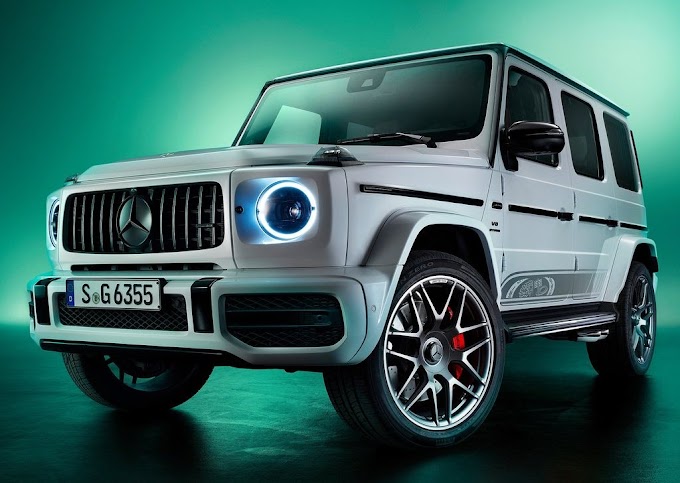Audi presented the SQ7 and the SQ8 with new TFSI engines. The brand is thus responding to the worldwide trend toward sporty gasoline engines in the high-performance SUV segment. The Audi SQ7 and SQ8 feature numerous high-tech suspension components and offer new connectivity and assistance functions. They will launch on the European markets beginning in autumn 2020. With its output of 373 kW (507 PS) and 770 Nm (567.9 lb-ft) of torque, the 4.0 TFSI gasoline engine propels the large Audi SQ7 and SQ8 extremely powerfully. The sprint from zero to 100 km/h (62.1 mph) takes just 4.1 seconds; acceleration from 80 to 120 km/h (49.7 to 74.6 mph) just 3.8 seconds.
Top speed is electronically governed at 250 km/h (155.3 mph). Depending on the equipment chosen, the SQ7 consumes between 12.1 and 12.0 liters of fuel per 100 kilometers (19.4 - 19.6 US mpg), corresponding to CO2 emissions of 278 to 276 grams per kilometer (447.4- 444.2 g/mi). For the SQ8, these figures are also 12.1 to 12.0 liters (19.4 - 19.6 US mpg) and 276 to 275 grams CO2 (444.2 - 442.6 g/mi)). The biturbo V8 is a high-tech engine. The cylinder on demand (COD) system temporarily deactivates four cylinders during moderate driving, thus reducing fuel consumption. The two twin-scroll turbochargers reduce backpressure and optimize gas exchange for improved filling of the combustion chambers. They are located in the 90-degree V of the cylinder banks. This layout results in short gas paths and spontaneous response even at low rpm. In the exhaust system, two mode-controlled actuators modulate the eight-cylinder sound. Oscillating coils in the active engine mounts minimize the transmission of vibrations to the body by generating counterphase vibrations. These overlap the engine vibrations and largely eliminate them.
For sporty movement: Power transmission and suspension
An eight-speed tiptronic and quattro permanent all-wheel drive transfer the superior power of the 4.0 TFSI to the road. The Audi SQ7 and SQ8 come standard with two sporty chassis components: the adaptive air suspension sport with controlled dampers and all-wheel steering. At low speeds, the latter turns the rear wheels by as much as 5 degrees in the opposite direction, which improves agility and reduces the turning circle. At speeds of 60 km/h (37.3 mph) and above, they turn slightly in the same direction for improved stability at higher speeds and during fast changes of direction. The advanced suspension package includes another highly effective module: electromechanical active roll stabilization (eAWS). When driving straight ahead, the system, which actuates the stabilizers via electric motors, provides for a high level of ride comfort. It also reduces roll during fast cornering. This package also includes the sport differential, which shifts torque between the rear wheels as needed during fast cornering. Handling is even more agile and precise as a result. The electronic chassis platform (ECP) is the central controller that interconnects most of the controlled chassis systems. Drivers experience this close interaction as maximum handling precision. They can choose between seven driver profiles in the Audi drive select system: comfort, auto, dynamic, efficiency, allroad, offroad and individual.
The Audi SQ7 comes standard with 20-inch wheels, with wheels up to 22 inches optionally available. With the Audi SQ8, the standard size is 21 inches with 22- and 23-inch wheels optional. Both cars feature front brake discs measuring 400 millimeters (15.7 in) in diameter. Their black calipers sport S badges. Audi also offers particularly powerful and durable carbon fiber ceramic discs for the front and rear axles. In this case, the brake calipers are painted anthracite gray. New features in infotainment, connectivity and driver assist systems round out the two models' technology package. They make driving and parking even easier, more pleasant and more comfortable. The Audi SQ7 and Audi SQ8 with the 4.0 TFSI will launch on European markets beginning in autumn 2020. List prices in Germany are 93,287.40 and 101,085.72 euros, respectively.
















0 Comments